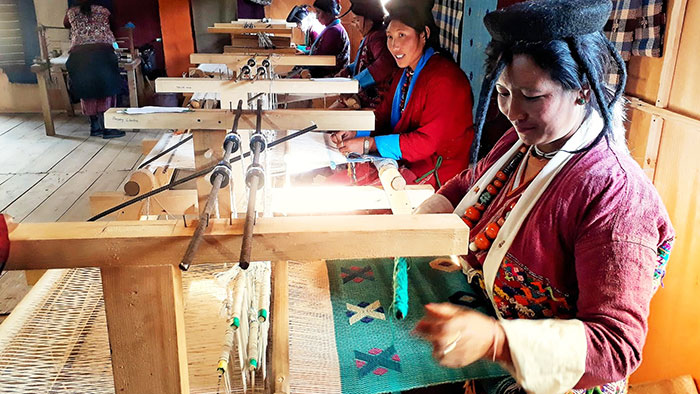Neten Dorji | Trashigang
Merak, Trashigang: Pema Youden separated with her husband 11 years ago. The single mother has been raising her two school-going children by weaving.
When the going gets tough, the meek and weak break. When farming doesn’t bring income the future is grim.

The training participants are given free yarn
Currently, Pema Youden and twenty-something Merak women are undergoing Yathra weaving training. The women hope that their newly acquired skills will help them make some money for their children’s education.
Thimphu-based Yarn and Yathra House is providing free yarn and training to the members of the Merak Ama Yathra group.
“With fewer women preferring kira and pants to traditional highland dress, weaving culture had almost disappeared,” said Pema Youden. “Yathra has market. It could be a principal source of income for the people of Merak.”
Luku, 50, said: “It is not easy to learn at this age but it’s a worthwhile enterprise.”
They are well aware of the small market and competition so their focus is on the quality product.
With the establishment of weaving groups and wool processing centre, the practice of rearing sheep is expected to return.
“It is exciting, getting to learn new skills. I want to pass the skills to my children and friend,” said Pema Wangmo, a trainee. “With the training we might even be able to make salient modifications to our traditional dress.”
The owner of Yarn and Yathra House, Karma Tshokey, said the training had the potential to help Merak women economically independent.
“I was approached by one highlander. That’s how it all began. The idea is to work together and help each other,” said Karma Tshokey.
The Department of Livestock (DoL) has been supporting the women with looms and other materials.
“The initiative could attract local and international tourists and help the sheep rearing culture alive,” a dzongkhag livestock official said.

